#which means he has a lot of responsibility as a narrator in a cast of idiots
Explore tagged Tumblr posts
Text

why does this keep happening
#this is brave the dark ch 5 btw not a new wip😭#and i still have to copy/paste one more scene at the end#i was trying to make it SHORTER#liza writes a fantasy au#liza blather#the thing about aizawa pov chapters is that he's one of the few characters who Knows Things™#which means he has a lot of responsibility as a narrator in a cast of idiots#okay not IDIOTS but most of the pov characters were not around during the hero-ing days and have limited adventuring experience#and as a result i have to edit so much infodumping out of aizawa's + yamada's povs#and then every other character is like what?? huh???#except for shinsou actually but he has a grand total of one (1) pov chapter in act 1 and it's near the very end
5 notes
·
View notes
Text
Thoughts upon finishing The Ballad of Songbirds and Snakes
Spoilers unmarked ahead as it's been out for a while and the title of the post warns for them.
As I've mentioned in my other few posts about it so far, I came into TBOSAS as a movie-only watcher despite having been a book-first person back when the original Hunger Games films came out.
I've got to say that when I heard the idea of a prequel about President Snow which included a love story, my tumblr-raised self wasn't particularly interested. I remember seeing the book display at Walmart when it first came out and not really having time or interest at the time.
However, the movie trailer caught my attention, and I'm really glad that it did.
I am happy that TBOSAS, while having a single POV character in Snow, switched from first person narration to third person. I remember reading meta years ago that I wholeheartedly agree with. While one can make the argument that the "blindspots" one gets in the original trilogy themselves make a point, having a slightly more zoomed out, third person point of view just feels better for the scope of the story. As an English teacher, I can't help but feel like it's a little more mature, too.
But without the movie, I still don't know if I would have ever picked up this book in audio or visual format.
Funnily enough, looking back on the first four Hunger Games movies, I actually don't like them as much as I like the books for the most part. The visuals are good in parts, but I do not like the casting philosophy that was used. I sort of hope that we are around long enough to see remakes as a prestige miniseries or something like that.
Back to thoughts on TBOSAS: I remember seeing a few kind of poorly produced (sorry lol) thinkpieces on websites like ScreenRant that were insisting that you weren't getting the full picture from the movie, that the movie made Snow too sympathetic, that you have to understand he's a monster because he views Lucy Gray in an objectifying manner or because he gets Sejanus killed.
I think that those takes have a point. However, I think that they also miss the nuance of the narrative, and I am not even suggesting that the prose is particularly deep or esoteric. Just that people love to be reactionary.
What I saw in Snow's character throughout the book was someone who was warring with various philosophical and personal dilemmas without having anyone he ever really trusted to talk through it.
There are moments with Lucy Gray and with Sejanus when Coryo almost opens up completely. When he has real conversations with them. But, like Katniss, he is a traumatized person who has a lot of baggage which makes him strategize and behave defensively with every decision he makes.
If anything, Coryo is LESS closed off than Katniss is at first throughout most of the story.
I couldn't source it, but I distinctly remember reading someone suggest that they believed that Coriolanus became irredeemable when he got Sejanus killed. However, reading through his internal conflict about the decision to snitch on him was one of the times when I found Coriolanus the most human and relatable. He was torn in every direction. He is someone who is deeply propagandized into a fascist regime whose family has a personal narrative of power and meaning within that regime. He also believes that the Capitol is necessary and better than the alternative. He wants Sejanus to survive and to change his mind. He wants him to stop putting himself in danger. He wants him to stop implicating Coriolanus by association. And yet, Coriolanus does feel responsible and tied to him, however much he hates it.
Coriolanus defends himself from emotional attachment and the cost of loving anyone, romantically or platonically, as a defense mechanism.
It isn't until he works himself into a frenzy and narrates what Lucy Gray must be thinking out at the lake in the end that he finds himself so utterly alone in his own head that he has no choice in his mind except to give into his colder side that he associates with his father, the Capitol, and ruthlessness.
Interestingly, a running theme throughout the book - without ever being explicitly stated in these exact words - is that Coriolanus is irreligious and doesn't believe in gods, rituals, or an afterlife. Every time someone brings up the stars or fate or performs some kind of ritual associated with passing on an even in the scene where Lucy Gray sings about the hereafter and therebefore, he can't help but internally scoff at the idea. He holds himself as more enlightened than those who believe in such superstitions.
But then, when he is all alone and trying to navigate his way back to District 12 with his father's compass, he starts to believe that there is some kind of spiritual guidance and blessing from his father, whom he never even felt close to except as an idea.
I think that Coriolanus's internal journey is an exploration of opposites and the divide that Lucy Gray describes and how evil is rarely even a boundary over which one cannot cross back into good from. It's just that, at a certain point, Coriolanus cannot bear the weight of his own guilt and misgivings if he ever turns back to a "better" path.
On the subject of Lucy Gray: I've got to say that I thought the book was effective in showing Lucy Gray as someone with dimension and depth that Coriolanus saw glimpses of but never really fully understood. Had he stayed with her and not needed "civilization" so much, I believe he would have learned to see her as more and more of a full person. However, the way she is written in the book, it is really hard for me to get a mental image of her at all.
Again, I think that this is perhaps intentional as a part of this format of the story. However, I find that I appreciate Rachel Ziegler's portrayal of Lucy Gray so much because without it, I'm not sure I would find that much to emotionally invest in. This is actually quite the opposite, as I like my mental image of Katniss far more than JLaw's portrayal lol.
Anyway, those are my wrap-up thoughts.
#tbosas#snowbaird#coriolanus snow#tbosas meta#thg meta#the hunger games#the ballad of songbirds and snakes#prix op#lucy gray baird#sejanus plinth#meta
33 notes
·
View notes
Note
i sent you an ask a few days ago about responsible science but i guess i have to send another, because these stories are hitting me hard right now and i find them far more compelling than canon (maybe because bruce banner is Like That in approximately one movie, for ~30 minutes of screen time?) you've basically
here's a question: if you could ignore the all the terrible complications of putting fic into movie form, would you adapt one of your fics into a movie? which one(s)? i guess the character driven style isn't as typical for a movie as it is for writing, and it's a lot harder to explore characters' thoughts and memories in a visual format, but despite all that your stories strike me as being very very movie worthy, not just the long epic ones but the shorter ones exploring character dynamics
I am also obsessed with That Bruce Banner, and you are right that he appears for only about 30 minutes in all of MCU. The other Bruce Banner is Doofus Banner, who is cute and funny but not my guy. It makes me so sad.
This question is interesting. I write fic with the intention of writing a textual story; I think if it interested me as a movie, I might not write it. That is, I think most of the richness of my stories is in the narration, not in the plot or visuals or even dialogue. I do think the dialogue would be fun to hear actors say, but a lot of it works because of the POV of the story.
I mean, I'd be really happy to watch the actors who play WWX and LWJ in CQL make out, but I don't think the fics I've written in that fandom would make very interesting movies. I feel that way about a lot of things I've written--I'd also like TOS Kirk and Spock to kiss, but uh, one of the actors is dead, I'm not sure I love the idea of CGI, and honestly maybe the stories just work better as text.
I do think parts of Responsible Science lend themselves to movies. I think part of the reason was that I was writing these not as simple romances but as direct post-canon for an action movie. I was very tired of the "everyone lives at Avengers Tower now and has sleepovers" kind of fics, and really wanted to write a way of these people working together that I thought could actually happen. I think A Fine Spur; Keep Your Splendid, Silent Sun; and Let's Stop The Timewarp again are very suited to cinema. They are plot-driven and action-heavy, with some scenes that would be highly cinematic, imo.
I would worry about the actors feeling like their characters in The Kids Weren't Alright, because they'd have to cast young versions of actors we already know. And I wouldn't want The Hollow Men to be made into a movie; I think within the fanfic space, writing a fic that says, "hey, let's use white super hero characters to reflect on imperialism and racism" is a way of asking the reader to consider the media they consume in a slightly different angle; it's subversion and transformation. But if you're making that into a big budget movie, you've got a different audience and are also pouring money into white perspectives on black bodies, and honestly there's enough of that already.
I also struggle about the idea of one of my Harry/Draco fics being made into a film--would JKR profit? And even if she didn't, idk, I feel like I'd probably disagree about casting. That said, I actually feel that The Boy Who Only Lived Twice is plotty and actiony and quite cinematic, and in a vaccuum, I think it would be a fun plot to watch.
15 notes
·
View notes
Note
it’s high key really annoying the attention toh gets on this website while no one acknowledges tdp exists
Yeah, sometimes I wish TDP got more recognition and appreciation in a fandom space for its storytelling (the parallels, the worldbuilding, the mature theme explorations) simply because we haven't had a western kids' show go this hard since TLOK (even if I think Korra stumbles in a lot of ways) and arguably ATLA in its explorations of war and morality, two things that TDP is obsessed with, as well as a sometimes overwhelming discussion of Grief.
However, to be frank, while many teen and adult fans of kids cartoons say that they want darker themes and storylines, what that usually means, I think, is more akin to something like TOH or She Ra, in which you know 1) your favourite characters will always typically survive with maybe one or two minor parental or villainous exceptions, and 2) one or two characters in an otherwise fairly cookie cutter 'good guy' cast will have a redemption arc or be quirky morally dubious in a way that's played for comedy, and there will be a handful of significantly "Oh Shit!" darker or creepier moments. The characters are mostly teenagers, the heavier plot stuff is regulated to a few standout episodes, with most of the other conflicts being things like figuring out how to make friends or struggling with not fitting in or deciding what you want to do with your life. And those are all good explorations, and it's not as though TDP doesn't touch on some of that (Callum is finding his place in the world, Rayla is 'changing careers', Ez struggles with his new responsibilities and not fitting in, Soren - like Hunter - leaves an emotionally abusive relationship with a parental figure).
But I think it's TDP's attachment of all of those things to morality that makes the emotional stakes higher and less comforting and/or comfortable for people who are, likely, going to fiction for escapism rather than exploration. (To be clear: one is not better than the other, I just know what my personal preferences are.) Rayla's 'career/schooling' change is whether she's going to kill people for a living; Callum deciding what sort of mage he's going to be is rooted in deciding how much he's willing to either slowly destroy himself or take on the impossible, both with some dire consequences; Ezran not fitting is is also tied to having mysterious, unknown magical powers the story still hasn't fully explained the root cause of. Yes, the three main kids are typically good people who want to do the right thing, but that's much easier said than done (Ezran burning the monster soldiers, Callum's ruthlessness, Rayla's self sacrificial tendencies manifesting in destructive ways). TDP is never going to have an episode of "I lied to my friends because I wanted them to think I was cool or not a nerd" or "I'm scared of them preferring someone else over me" or "I need to learn how to be a good friend" (hi TOH with like 5 episodes and She Ra).
Like Rayla lies to the boys, but that's because she isn't sure how to tell them that her father murdered theirs and made them orphans, and she's worried it will accordingly be a wedge between them.
Like, there's hardly any episodes of TDP that don't talk about grief or death or both in some manner. The show consistently explores unreliable narrators across all sides of its ethical spectrum(s). S4 has a subplot regarding religious traditions and the ethics of the death penalty. Most of Arc 1 and now into Arc 2 sees good people with good intentions or understandable motivations doing pretty terrible things to either themselves, the people around them, or both. The death and body horror imagery aren't one offs, but consistent series defining elements that are always treated seriously. Villains aren't people who don't love their families (or anyone) and good guys aren't good because they're good friends to one another. It's more complicated than that, from the body swap and discussions of the soul in S1, to the cycle of violence laid out explicitly in S2, to explorations of punishment and exile in S3.
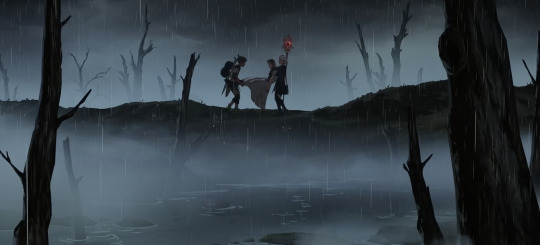
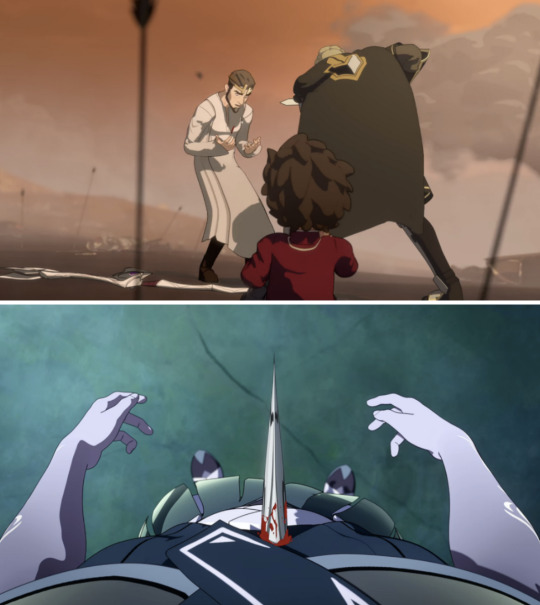
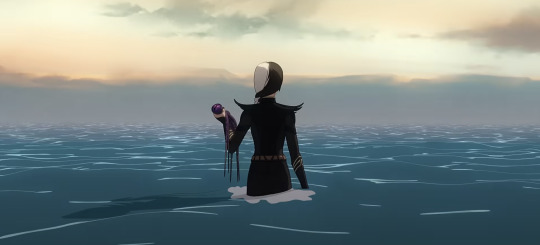
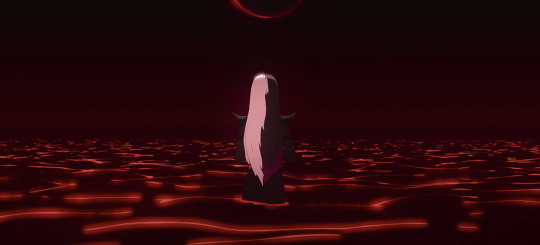
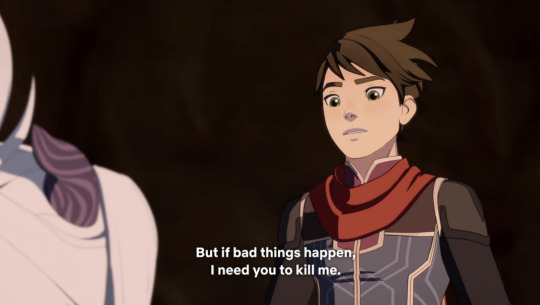
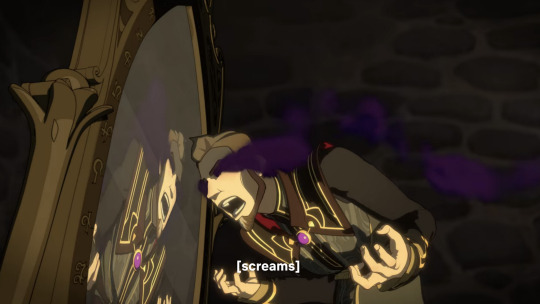
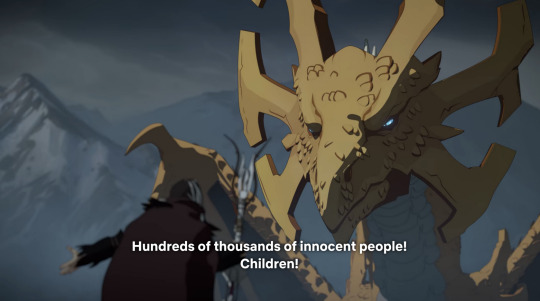
Overall, I'm fine with the success and appreciation that TDP gets; some of my students watch it, actually, which makes it useful in some of our lesson discussions. Because TDP is a good show for kids, yes, but it certainly never pulls its punches in forcing all of its ensemble cast through the wringer.
TLDR; due to age demographics and tonal differences, particularly in character conflicts, themes, and amount of Lore, I'm not surprised at all that TDP is pretty underrated on tumblr. Again, doesn't mean these elements of 'maturity' make it Better (although I do think it's written more cohesively than She Ra and more consistently than TOH in its set up and payoff), I just know where my (and many other's) preferences lay accordingly, and am not surprised at the split.
#tdp#thanks for asking#tdp fandom#will also say that besides httyd i think tdp might be the most adult heavy fandom i've been in#like there are very few teenagers here lmao#s5 spoilers
85 notes
·
View notes
Text
GO Meta: Lucifer manipulated Crowley into rebelling.
This might seem pretty obvious given that in Christian lore Lucifer is charming, beautiful, and deceptive. But we can’t presume to know GO Lucifer just from the Milton and Bible extended universe canon.
What DO we know?
FurFur remembers Crowley in the Great War. (Note that this doesn’t mean that Crowley didn’t do everything he could to avoid actual fighting. We don’t know.)
Metatron says that Crowley was *always* asking his damn fool questions. Metatron gives a nasty look to Crowley during the final 15.
Crowley and Aziraphale met Before the Beginning, and this we can presume was the first time Crowley experienced doubt about God’s plan, and from the dialogue, the first time he went to ask questions. But not when he fell. He fought in the war, and apparently had a *habit* of asking questions, according to Metatron. We can also tell that Crowley was naive.
Crowley would rather run from heaven and hell than fix them.
Crowley was a powerful angel, and he started part of the universe. He can stop time.
Neil has said that Crowley is an unreliable narrator about his own fall.
Crowley describes his own fall “not so much as a fall, but as a vague saunter downwards”, that he “only asked questions”…but he also says he was hanging out with the wrong people - Lucifer and the gang.
Crowley is given extremely important roles in the Bible. He’s the serpent in the garden. He literally brings sin to mankind. If you were Satan, would you give the biggest jobs to someone who you didn’t trust or didn’t think was competent? Why does Satan trust Crowley with so much?
My theory?
Crowley asked questions and he didn’t get the answers he wanted. Maybe he even put in for a suggestion box. Lucifer, being pragmatic, uses this as fuel to get Crowley on his side. He’ll make things better, heaven needs new management, he’ll listen.
Except, things don’t go as planned. And when the angels are cast down, Hell is no better than heaven under Satan’s management.
Crowley was likely not only let down by God. He was lied to and let down by Lucifer. But at some point, Satan valued Crowley enough to give him the biggest roles to play.
While of course he trusts Aziraphale, if this ends up being true (which, imo, seems likely because I mean…the devil is known to lie, and demons are good liars, where do you think they learned it from if not from experience?) this gives a lot more context to Crowley’s flight response and his reactions to Aziraphale saying “if he were in charge, he could make a difference.” Crowley has been let down by old and new management, and he used to be like Aziraphale in thinking that Heaven could be better, even if he went about it in an entirely different way by rebelling openly.
I’m sure that Crowley’s role in the war and pre-fall is complicated and he probably didn’t do everything Lucifer thought he did - but again - what did Crowley convince Lucifer of that when he became Satan, he relied on him so much?
#good omens theory#good omens meta#good omens headcanons#go3 speculation#good omens 3#crowley#good omens#good omens news
36 notes
·
View notes
Text
Chronicles of Amber Fancast
Prefacing this with what I actually want from a Chronicles of Amber series is that tweet about not actually wanting an all star cast but ten unknowns and a scriptwriter that is deeply unwell. But if I'm gonna pick and choose big name actors here is who I would like based mostly on vibes, attractiveness (to me), and the likelihood it would really upset certain subreddits. AKA everything important in life. Mainly just the children of Oberon in the first five books bc it's already long enough as is.
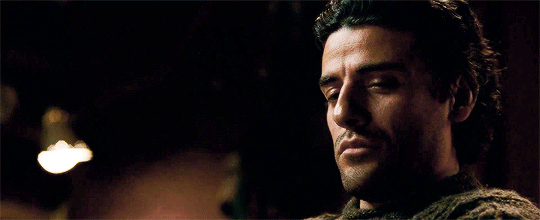
Corwin - Oscar Isaac
Charismatic enough to make me forget how much I fucking hate Corwin, also he can sing. Thanks to Moon Knight we know he can totally rock "Protag who is just as confused as the audience as to what is going on" which is v important for Nine Princes In Amber.
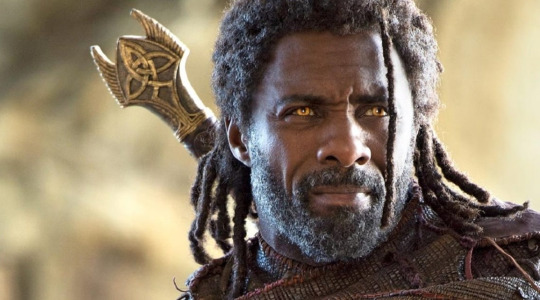
Benedict - Idris Elba
Tall, 100% Done With This Family's shit, can carry the vibes of someone who only doesn't have the throne because he doesn't want it and everyone agrees if that was different he'd just have it.

Eric - Taika Waititi
Can balance both absolute piece of trash bag of dicks while still being charismatic which is really what's important about Eric.
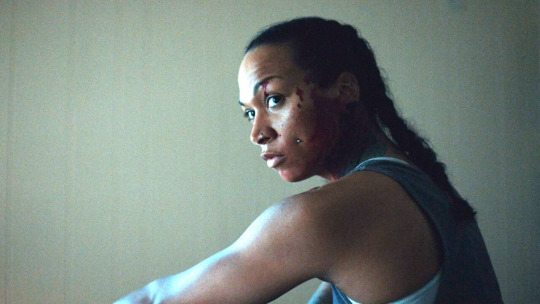
Deirdre - Kali Reis
You want a battle maiden you'll get a battle maiden. If anything the main problem here is there's no way on god's green earth you could convince me she'd need Corwin and/or Random to come to her rescue for anything, but hey adaptations are for changing things.

Fiona - Sophie Turner
For all the redheads I thought it'd be important to pick people who normally play affable everymen/heroes/people you're used to seeing as goodguys, even if the nature of adapting a book series that's older than most of the people you'd cast in it means the 'big twist' of who the traitors are is something everyone sees coming. So someone well practiced at ingenues would be perfect for the actual baddest bitch in charge.
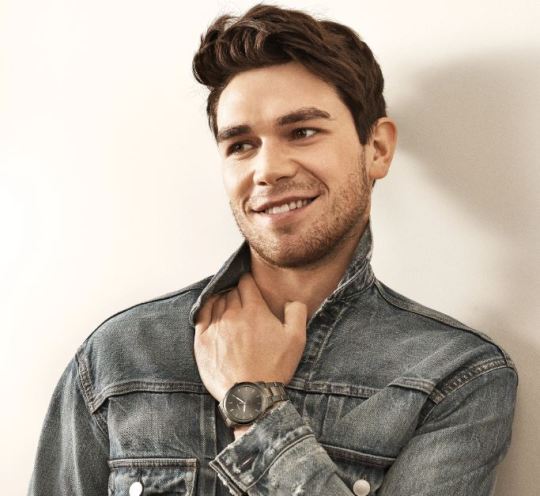
Bleys - K. J. Apa
We're gonna give him a better dye job than Riverdale though okay I promise.
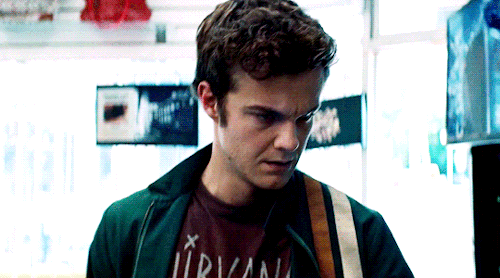
Brand - Jack Quaid
Absolutely 'just this guy you know' vibes. Easy to overlook. Would YOU believe he was the big bad? Come on.

Llewella - Halle Bailey
Yes I'm making a Little Mermaid joke, try and stop me. But also given how shafted she was in the books I think it's important to use someone who can do a lot with having few speaking lines (though hopefully again that would be fixed in an adaptation)
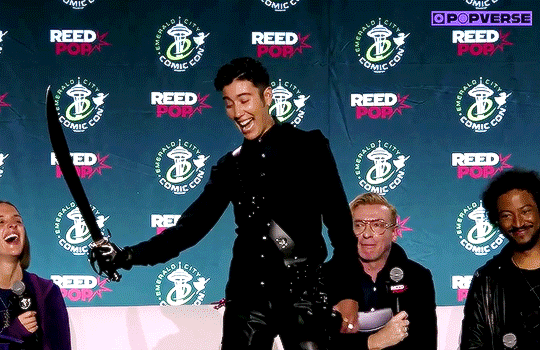
Caine - Vico Ortiz
Literally I just want to watch them doing all the scenery chewing bullshit you know Caine has to get up to while they are manipulating and spycrafting their way through shit. Can fully believe they'd pull a finding a copy of themself to kill and leave so people don't know they're still around behind the scenes. Especially in their Blackbeard fit, come on.
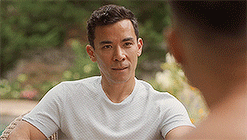
Julian - Conrad Ricamora
Did I just cast my absolute most favorite Mister Darcy as my number one blorbo Julian? Call the fucking cops on me idgaf. His resting bitch face and sarcasm are second to none. Also watch Fire Island (2022) on Hulu.

Gérard - Jason Momoa
Along with being the biggest canon kinda implies he's also the hottest of all of Oberon's sons so absolute massive dreamboat Jason Momoa it is. Also for the lolz of him and Vico being the navy people.

Florimel - Jamie Clayton
Did you ever see a woman so beautiful you started crying?
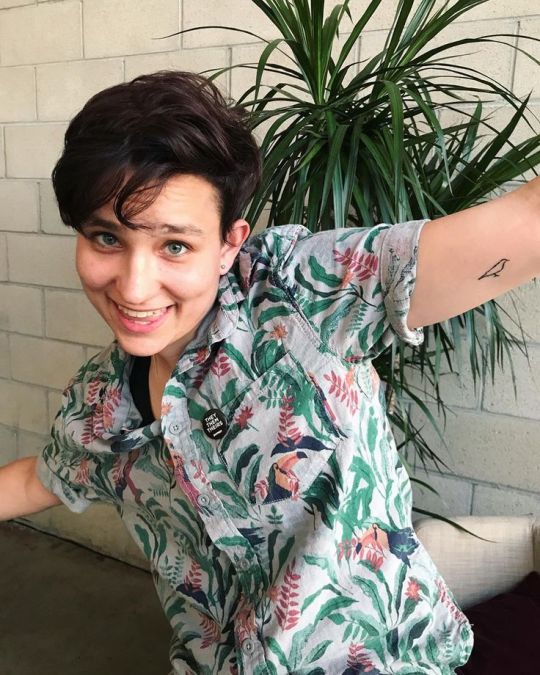
Random - Bex Taylor-Klaus
They can absolutely go through the journey of youngest sibling in the jester position/fuckup because who cares > most responsible one after all.
BONUS
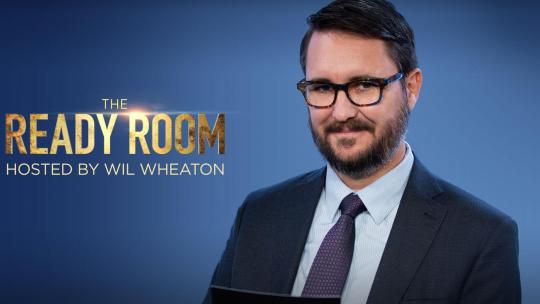
Bill Roth - Wil Wheaton
Look I adore his narration of the last five Amber books!!! I want him somewhere so the reliable chillax lawyer from earth who somehow just rolls with becoming the family lawyer for what amounts to gods of reality. I know I said I actually want a bunch of unknowns for the actual series but I will cry at whoever I must to make this happen. Please.
17 notes
·
View notes
Text

Title: Sound the Gong (Kingdom of Three #2) Author: Joan He Genres: Fantasy, Historical Pages: 368 Publisher: Roaring Brook Press Review Copy: Purchased Availability: Available now
Summary: All her life, Zephyr has tried to rise above her humble origins as a no-name orphan. Now she is a god in a warrior’s body, and never has she felt more powerless. Her lordess Xin Ren holds the Westlands, but her position is tenuous. In the north, the empress remains under Miasma’s thumb. In the south, the alliance with Cicada is in pieces.
Fate also seems to have a different winner in mind for the three kingdoms, but Zephyr has no intentions of respecting it. She will pay any price to see Ren succeed—and she will make her enemies pay, especially one dark-haired, dark-eyed Crow. What she’ll do when she finds out the truth—that he worked for the South all along…
Only the heavens know.
Review: [An extensive list of content warnings for Sound the Gong can be found here.]
Sound the Gong is a direct continuation of Strike the Zither, and that strongly affects its structure. This book is paced like the second half of a much longer story rather than as a more traditional sequel, so while the book has its own self-contained plots arcs, it also concludes many plots that were started in the first book. Author Joan He recommends rereading Strike the Zither before reading Sound the Gong, and I heartily second this. Sound the Gong does almost no recap, so if you (foolishly, like me) try to go in without at least reviewing the recap of Strike the Zither, you could be lost quickly. I attempted going in cold and ultimately ended up rereading Strike the Zither instead (which was a lot of fun).
Zephyr continues to be a compelling narrator in her determination to help Ren be victorious in her war, no matter the cost. Zephyr’s strategist mindset is cold and ruthless, and her pangs of conscience don’t often win out against the prospect of victory. Her godhood gives her an edge in some respects, but it also means she can repeatedly suffer in horrible ways. In a note at the start of the book, Joan He wrote, “The reality of war, conversely, remains relevant to this day and is therefore preserved wherever necessitated by the story.” As one of the chief strategists, Zephyr shoulders a significant responsibility for what happened during the war and to the world that was built after it. Her character arc is fascinating, and I loved the ride, even when I was distressed by what she was doing.
In my review of the first book, I noted that there wasn’t much time to develop Zephyr and Crow’s rivalry/relationship; this second book remedied my concerns on that front (in a way that I was not at all expecting but very much enjoyed). Once again, their battle of wits was as cutthroat as it was compelling, and I appreciated that the narrative did not try to sugarcoat the terrible effects their stratagems had on the world in general and directly on each other. I loved where this story took the two of them, and the book’s coda was a wonderful way to explore the effects of their relationship on the world.
In addition to Zephyr and Crow, the wider cast had their moments to shine. I particularly enjoyed the deeper explorations of Ren, Cloud, and Cicada in Sound the Gong and how Zephyr’s views of them changed over the course of the book. Ren and Cloud challenged Zephyr’s view of herself and them, and of the role of a strategist Itself, and the book was all the better for it. I do wish we had gotten more of November, but that is a minor complaint weighed against all the fantastic character development from everyone else.
Recommendation: Get it now if you’re in the mood for a sweeping war novel. Sound the Gong is a strong conclusion to Strike the Zither, providing payoff for Zither’s many setups and exploring what it means to be desperate to win, no matter the cost. Zephyr and Crow’s complicated relationship plays out in unexpected but interesting ways, and Zephyr’s choices and character development are handled masterfully. This duology Is one I will definitely be revisiting.
Extras: Exclusive Interview: Joan He On Sound The Gong
Read an excerpt of Strike the Zither on the publisher’s website
8 notes
·
View notes
Note
how about dale redmayne for the character ask?? :]

YEAH DALE MY BOY DALE
I have so many thoughts and I am going to try not to spend all night writing this even though it's sorely tempting. It's surprising to me just how much we can pull from the little we've been given and like some idiot dog I've taken that and run off with it while shaking it in my mouth
First impression: Pretty sure the first I became aware of his existence is Fool for Love, which is tricky because Buck is the world's least reliable narrator so it's really hard to know how much of that video to trust (and also confusing that they cast Stevin here as Dale, I... have to assume because it was just convenient but in retrospect after watching Vide Noir this could also represent some real confusion on Buck's part I guess). I guess the best I can say is that he was intriguing and I was a quick fan but also like, there wasn't much more to say. Some point afterward I became aware that he's the writer for all of the Phantom Riders' music and boy that is where the fun starts.
Impression now: Dale my beloved mess, Dale I feel so bad, Dale!! You keep losing people!!! god
Basically, here we have a guy who is clearly pretty brilliant at songwriting, both in terms of instrumentation and lyrics. He has to have a ton of creativity, intelligence, and passion to pull this off, I mean, consider all of the Phantom Riders' tracks and work out how those lyrics could have come from the mind of a Latino kid growing up in East LA in the 50s-60s, where the state was not exactly prioritizing their education. It would have taken an enormous amount of drive to shrug that off and start a band and write songs like these and make that work somehow (and certainly people did - Ritchie Valens might be one of the most well known today but there were many others).
Somehow he's able to balance that with evidently some kind of leadership status in the World Enders (both he and Alex have been named leaders, and since they're brothers, possibly co-leaders? that's how I interpret it but there are other options, like Dale left most of the leadership to Alex so he could pursue music, perhaps). Whether he's top dog or not, if we can trust Fool for Love at all he has some kind of higher status and a close circle of trusted folks who will fight by his side. Between these two facts, gang leader and rock musician, he probably has a pretty charismatic personality that lends itself well to leadership and stage performance, on top of the clear intelligence and creativity the music shows us.
And then! Somewhere in here, his brother is murdered, and Rigo (the band's drummer so presumably also a good friend) goes missing. A lot of the song lyrics seem to be a response to Johnnie's death in some way. My heart goes out to this poor dude so much because he lost a lot but the World Enders do truck on with their nihilism and he'll cope in whatever way he's able while accepting that death is just another fact of life even if it fucking sucks when it's your little brother and who knows if Rigo is dead or alive now too.
What? Oh that was supposed to be my impression now. I have so much impression.
Favorite moment: We are shown very little of him in action but I'm pleased that Miguel gets to briefly and temporarily depict him having a hell of a good time on stage in the underground club in the movie. I would love a whole fictional recorded live performance because the guy must absolutely have so much stage presence. Alternatively please give me more of his non-music side as delightfully violent gang leader alongside his brother. This is now a wishlist of moments.
Idea for a story: I'm interested in the balance between public and private life when you have someone who is a rock musician known well enough to have been on TV for a live performance in the 60s, and also absolutely a notorious criminal. I know obviously that this is a real scenario for a lot of folks these days but most current gang members that I am aware of who are releasing music are mostly doing a lot of self-promotion on, say, youtube. The social media and music industry environments today are very different from how they were in the 60s - there would have been a lot less opportunity for everyone to try to make it big back then, I feel like, meaning that somehow Dale is getting on using his real name and face and everything on television performing and like, there were fewer TV channels then, he has an opportunity to be a household name for his music, and then somehow he is able to step off stage and slip his black jacket and knife back on and get to business carjacking or whatever. Aside from "why has he not been arrested after a gig yet", what is that shift like, from street to stage and back? I don't know if I'll write that but it's an interesting thought to explore.
Unpopular opinion: Man if anyone has popular opinions about him to begin with I don't know them.
Favorite relationship: Well, like I said with Alex, his brothers. This trio is just so much trouble and I need to know more. Unlike with Alex, Johnnie doesn't mention Dale by name in the film (which is weird but hey I didn't write the script) - but it's obvious he still has a lot of affection for his brother's band, and vice versa Johnnie is on the cover of the Phantom Riders' album Black Brained in between two unnamed members, which may well be in honor of him after his death, so, there's a lot of love there, once again.

Favorite headcanon: Oh you want even more headcanon do you? Cool. I write Dale as the smug, cocky, very self-assured middle brother. The one who, unlike the other two, actually tries to keep up with the news, who has probably already burned his draft card while laughing hilariously about the audacity of the government to ask that of him while they give nothing in return, and who is very visibly a womanizer while quietly treating himself to pretty boys on the side. It's sex, drugs, and rock and roll all the time and you can't and won't stop him, and if you don't notice that he's smarter than he lets on, all the better, he doesn't give a single shit what you think. The World Enders are his family and he will fight fiercely for all of them, and meanwhile he'll play guitar while working on music at any hours he pleases and fuck you if you think you get to complain about that, take it or move out.
I love Dale. A lot. Oh and he also has great tattoos. Those will get posted soon.
5 notes
·
View notes
Note
Crowley and Aziraphale always came off as romantic to me; both in the book and in the show. They have so much more chemistry than anyone else. And I always second guess me reading their relationship as romantic when I see the general public's takes. So then I go back over like, okay, if this was a man and a woman, how would this read. They do couple things all the time. They use pet names. The show leans more into pining but in the book it feels like they're already married. Both the narrator and other characters refer to them as a couple and its never contradicted. Is that subtext or just plain text. I wouldn't call it queerbaiting, but queercoding or representation doesn't feel quite right either. Are we reading too much into it or is media literacy dead.
Hi there! Thank you for sharing these thoughts in response to my post from the other day. What you've mentioned here (how this would read if it was a man and a woman) is something I have thought about as well--both in terms of Aziraphale/Crowley and Michael/David, as I have shipped them outside of the show for some time now, and especially given the increasingly fuzzy line between them and the characters (which both Michael and David themselves have talked about in multiple interviews).
I think what we're seeing is neither queerbaiting nor queercoding/representation, but instead a sort of incongruity between what was put on the printed page when Good Omens was first published and what was brought to life on screen when it came to TV. What I mean by that is I often see a lot of people point to the line "gayer than a treeful of monkeys on nitrous oxide" as proof (almost typed "poof" there--hello, Freudian slip...) that Neil/Terry meant for the characters (specifically Aziraphale) to be gay. But from what Neil has said, the main intention here was for this to be a play on words--so, "gay" as in homosexual, but also "gay" as in happy, which was the original meaning of the term. I'm then led to think that in the minds of two cishet men in the late 1980s, "gayness" conjured a particular, unserious image, which they then brought into the writing.
Fast-forward to thirty years later, and you have Good Omens finally becoming a television show. Terry Pratchett (Gnu) had sadly left us, and so the task fell to Neil to write the screenplay and honor Terry's last wish by faithfully adapting the story. And while Neil wisely decided to cast Michael for his goodness and angelic-like nature, what I think he didn't count on was Michael's long-held beliefs and ideas about the character of Aziraphale and how he would portray him, or his profound penchant for playing numerous queer characters over the last several decades. The gayness of Aziraphale on the written page was something that Neil could control, but he couldn't control the gayness of Aziraphale as interpreted by Michael.
So that led to Neil having to address some things that I don't think he was quite prepared to address, both about the show and inside himself. Mainly, that if we are to extrapolate that what we see in season 1 is a reflection (to some degree, anyway) of Neil's views on relationships, a straight couple with little to no chemistry can jump into bed together without any hesitation, but a gay couple with tremendous chemistry and who share a deep and profound connection can't express that, either physically or by simply saying "I love you."
Much discussion has been made about how it's not necessary for someone to say "I love you" to convey such a sentiment. But what I've noticed missing from this discourse is the age/experience of anyone who has been in a relationship where that wasn't said (or conveyed) by one partner and how painful that was for the other partner. And as I mentioned in my other post, even once gay/queer people started to exist in media, they still weren't allowed to fall in love. (The phrase "the love that dare not speak its name" even came into being because of this taboo, for crying out loud.)
So when we then look at the countless tweets from Neil about how Good Omens is a love story while considering the vastly different ways in which that love is regarded when it's straight vs. when it's gay, his words start to ring somewhat hollow. And if he repeatedly has to emphasize that something is a love story, then maybe it isn't coming across as a love story in the way he thinks it is. Maybe Neil being more comfortable with casual, meaningless sex than a deep commitment speaks to a larger issue on his part. Or maybe Neil was fine with the abstract idea of a gay love story, but suddenly less comfortable with the concrete, three-dimensional reality of it.
If I had to use a word to describe it, then, from a media/cultural standpoint, I think I would call it "queerplaying," which I would define as roleplaying queerness on a surface level without actually delving into the complexity and messiness of what it actually means to be a queer/non-cishet human being. (To be clear, I am applying this to the writing/the original GO text, not to what Michael and David ultimately brought to the roles as actors.)
I hope this all makes sense. Again, the second season could come out tomorrow/Friday and prove me completely wrong about everything I've just said here, which would be wonderful. But I'm glad that other people have felt similarly about what we saw (or didn't see) in the first season, and the disconnect between the perceptions of fans/the perception of the public vs. Neil's authorial intent. Thanks for writing in! x
#pavoptes#reply post#good omens#good omens 2#aziraphale#crowley#ineffable husbands#neil gaiman#creators are not perfect#i think neil may have some internalized homophobia he is still dealing with tbh#but i'm glad we've had Michael and David as Aziraphale and Crowley#not holding anything back#can't wait for the second season#discourse
27 notes
·
View notes
Note
how old is the cast by the time of HW and Breach, or more specifically how long are the timeskips? (if it's vague because the timeline is still being reworked, though, that's understandable for sure!)
Unfortunately you're right that the rework means a lot of time is in flux. Ages and timeskip spans are pretty much up in the air, so a lot of things I'm going by a sense of feel, which is ehhh.. I don't have an English equivalent but I say mas o menos about it and hope those of y'all who know that feel understand what I mean.
Like I feel Jeremy by the time of Security Breach is very much considered a senior citizen by age in years, despite 7 slowing his aging by healing damage done by time. Like if he didn't have 7, he'd be a lot more reliant on Damien doing the hardware assembly of Securi-Toys while he stayed on software.
I feel that Alex was still technically too young to work security when Sydney was kidnapped, but old enough to be a busboy for Circus Baby's Pizza and Parties, which fulfilled employment requirements to keep him emancipated and Meera temporarily acted as his familiar reference until he was old enough to be considered responsible for himself.
Originally Sydney was only going to be gone a few months through the whole of Help Wanted, Special Delivery, and Security Breach, but thanks to Help Wanted's Curse of Dreadbear DLC giving an initial idea that the Pizzaplex was barely starting construction when Tape Girl was taken over by Elizabeth Afton, the time frame became a few years that he, Vanessa, and Gregory were held captive. This was to give time for the Pizzaplex's construction, Sydney and Vanessa's friendship to develop over time, Gregory's Remnant being resistant to shredding because of Mike making it take longer to do than for Lucian and so Elizabeth used some of that time to upload William Afton's knowledge of animatronic creation and Remnant research, and Glamrock Freddy becoming possessed by Michael Afton, forming close bonds with the other Glamrocks and mourning Glamrock Bonnie going missing and being declared decommissioned.
Vanessa kind of gives me vibes of being a little older than Sydney, and Sydney himself was at least 18 when he first got the security job from Meera so he could qualify as Alex's guardian in the emancipation application to the courts, was working there for a length of time until Alex got the beta tester job at that game studio (was it Silver Umbrellas Studios?) that ended with him getting kidnapped, and by the time of Security Breach Sydney was in his early 20's. Vanessa can't remember her age or birthdate, so she has to go by whatever information was given to her by Elizabeth Afton even if she doesn't trust the legitimacy of it. From Gregory's teacher's observation she looks young enough compared to Gregory to make the teacher think she was a teen mom, but she's a judgey bitch of an unreliable narrator so grain of salt on her assessment.
Gregory is definitely a kid about Cassie's age but thanks to Mike's soul essentially grafted into his own to keep his Remnant from being fully scrubbed blank, he doesn't always act or speak his age. It filters through kid vocabulary and behavior and makes him a little weird or out of line, and Cassie does give him a side-eye in those moments. Like it sounds like something a kid would do or say but there's something a lil uncanny valley in the delivery. So it's hard to pin down his age when he's also able to draw on Elder Afton's knowledge of coding and construction the more Alex teaches him about programming and hacking.
And by this time, if Steph hasn't found herself a husband then she's most likely married to Meera since that was Meera's promise to her when she was freaking out that she'd be unmarried by the time she was 40.
See what I mean about time frames being kinda up in the air? And like all of this could change yet again once I get things more concretely pinned down.
2 notes
·
View notes
Text
That time I cried while playing DnD
Context: I play as Elizabeth Adawolf, a human order of the lycan blood hunter, who comes from a noble family that died on a fire during her wedding day years ago.
Our party had been terrorized by a demon, who was particularly targetting Elizabeth (possibly due to her being the champion of the Sun Goddess). We needed a way to lure him out of hell. We discovered that he cast a powerful teleportation spell that, in the case in which one of the members of our party died/had a near death experience, he would use that as a passage to our world. When all members of the party that could contact Gods for guidance failed to get any hints as to how to solve this, I (the player) did what could be considered the most idiotic thing in the world tabletop RPGs:
I made my character attempt suicide.
I legit narrated my character going into a separate room, far away from everybody, getting her special longsword, the one that completely changed her destiny, and made her stab herself in the chest until she fell unconscious. The DM, after getting a lot of vocal confirmation from me that I intended to do that, narrated how the demon showed up. The sessions ends there.
Next session, while the rest of the party fights the demon, I'm rolling constitution saving throws to determine how much damage from blood loss I'm getting.
When Elizabeth drops to 2 HP, the DM asks me what is my character's favorite place in the world. I say Elizabeth's would probably be the ballroom from her household, where she used to dance and fool around with her siblings.
DM says Elizabeth suddenly sees herself in a dress, walking alongside her oldest brother. The weird thing is that this is not a flashback, because Elizabeth has her scar and her brother says she is married. After questioning him further, she discovers the man responsible for her family's death is in their house and so she decides to do something. She hugs her brother, apologizes and runs away to her room.
Walking there, everything looks the same except for 3 things. In the windowsill, there lays the legendary sword belonging to the Sun Goddess (one Elizabeth is actually on a mission to find). On the furniture next to her bed, there is a statue of her Goddess (another sign things aren't the same because before shit went down, her family whorshipped the Sea God) and next to it, there is a small portrait of her and her husband, and she has the scar in it. She takes up the portrait and walks to the sword and the DM says that Elizabeth must make a spiritual decision: stay here or go back.
For me and Elizabeth, it was obvious that the only choice was to go back. As nice as this whole thing was, she still has stuff to solve in the living world. She grabs the sword and looks back at her room one last time.
And this, my friends, is when I started going downhill in an emotional rollercoaster.
Cause when I did that, the DM says: "As you look back, your father stands in the doorway. He has a sad expression but also one of understanding. He knows what you must do".
And that's when I started to cry. A lot.
It wasn't some small tears. No, dude, it was a full on cascade of tears. My face was contorting, I was sobbing and gasping, I could barely speak.
The DM said I needed to decide but I asked him to skip my turn (because yes, while this was happening, the fight with the demon was going on) and then come back later, and he agrees to it.
I keep on crying for some time, but I eventually calm down.
Until, that is, it gets to my turn again.
I say that Elizabeth's gonna let go of the sword and run to hug her dad, something she's been longing to do in so long. And the DM says "when you touched the sword, you made the decision to leave. Letting it go, would mean to stay".
And that broke me even more. I began sobbing all over again.
Through the tears and the pain, I was able to narrate that Elizabeth, also crying, extends her free hand towards him and says:
"This will hurt more than the first time I lost you"
and then her eyes open.
Now, let me explain why this scene hurt me so much.
I don't think I show it here often but I'm very close to my dad. Like very very close. I'm daddy's girl. My dad has always been very present in my life and he has done literally everything for me. And for some reason, I keep dreaming that my dad dies. It has been a few years since the last time I dreamt with that, but it still lowkey hurts you know? So when the DM was talking about her father, I wasnt "seeing" Elizaebeth's fater, I was seeing MY dad.
And also, Elizabeth has this feeling inside of her of like, she wishes she could have said goodbye to her family. Because the last time she saw them, she didn't know it would be last time, she didn't get to say goodbye, But now, she's in this position where she HAS to choose between her family or her life, and she has to say goodbye to them but she still can't bring herself to do it. She can't even touch him.
This is why she said it would hurt more. Because now she is actively choosing to leave them behind. She is forced with saying goodbye and this is the hardest thing she has ever done before.
2 notes
·
View notes
Text
Thinking about how Frank and Vigo have almost the exact same line, and they’re the only two who share it. Frank gets his twice, once as dialogue, once as close narrator commentary (so, him and Vigo), and Vigo says his. The line being [Close Third (Frank) — 600 Seconds] “Frank was a lot of things, and a lot of them bad, and heartless, and fucked up, and he knew it, but he wasn’t a traitor.” — and — [Frank — Alive Inside] “I mean it. I’m a lot of things, but I’m—I’m not a traitor. I wouldn’t fuck over my own team.” — and Vigo, in response to Philip’s “You promised me! You swore!” [Vigo - Signifying Nothing] “I know. But I’m won’t simply let you die. I’m a liar, but I’m not a traitor.”
And something about how that’s probably why Frank merits notice fairly early in ILM despite everything wrong with him, and the reason these characters share that line and sentiment, and that they’re the only two who do, being that they’re the only two in the cast who have been outwardly declared monsters basically their whole lives, for what they exist as [Frank in a more abstract ‘you’re a bad kid’ way in the foster system, and Vigo specifically for racist and homophobic ‘your family are heathen witches and you’re a dangerous predator for liking men’ way]. Which Frank has fully accepted, and Vigo rejects, but is nonetheless hyper aware of and constantly sort of feeling a need to defend himself from. But there is a solid link of commonality, because that’s a very specific sentiment to voice, and I just think it’s really interesting.
#signifying nothing (fic)#signifying nothing#in living memory#in living memory (fic)#I put my thoughts here so I can use the (desktop) tag search bc I lose my notes >.>
3 notes
·
View notes
Text

The Yid. By Paul Goldberg. Picador, 2016.
Rating: 3.5/5 stars
Genre: literary fiction
Series: N/A
Summary: Moscow, February 1953. A week before Stalin's death, his final pogrom, "one that would forever rid the Motherland of the vermin," is in full swing. Three government goons arrive in the middle of the night to arrest Solomon Shimonovich Levinson, an actor from the defunct State Jewish Theater. But Levinson, though an old man, is a veteran of past wars, and his shocking response to the intruders sets in motion a series of events both zany and deadly as he proceeds to assemble a ragtag group to help him enact a mad-brilliant plot: the assassination of a tyrant.
While the setting is Soviet Russia, the backdrop is Shakespeare: A mad king has a diabolical plan to exterminate and deport his country's remaining Jews. Levinson's cast of unlikely heroes includes Aleksandr Kogan, a machine-gunner in Levinson's Red Army band who has since become one of Moscow's premier surgeons; Frederick Lewis, an African American who came to the USSR to build smelters and stayed to work as an engineer, learning Russian, Esperanto, and Yiddish; and Kima Petrova, an enigmatic young woman with a score to settle. And wandering through the narrative, like a crazy Soviet Ragtime, are such historical figures as Paul Robeson, Solomon Mikhoels, and Marc Chagall.
As hilarious as it is moving, as intellectual as it is violent, Paul Goldberg's The Yid is a tragicomic masterpiece of historical fiction.
***Full review below.***
CONTENT WARNINGS: antisemitism, homophobia, violence, blood, use of the n-word, racism, discussion of the Holocaust, blood, gore, violence
OVERVIEW: I have absolutely zero knowledge about Paul Goldberg, but I picked up this book because a friend recommended it. I wasn't sure what I was expecting, but it doesn't really matter because this book is self-consciously playing with genre and history in ways that are fascinating. It also, however, deals with things that are way outside my limited understanding of 1950s Russia and Jewish literature. So while this is a well-executed novel, I'm only awarding it 3.5 stars because, subjectively, I think I would have gotten more out of it if I was familiar with the the subject matter.
WRITING: Goldberg's prose is literary, which means it's well-crafted and intentional about what it's doing. I liked that the narrator seemed to be offering asides and contextual information like you might get in a play, and I quite enjoyed Goldberg's descriptions.
PLOT: The basic plot of this book follows a group of ragtag Jews who plot to assassinate Stalin just days before the state begins a mass deportation of Jews in the 1950s.
This doesn't mean the novel is your typical heist or conspiracy narrative. The plot winds its way through the lives of several characters, some of whom are major players and some of whom last little more than a page or two. In this way, the novel is less concerned with building up the suspense of the assassination plot and much more interested in using dramatic tragicomedy to navigate antisemitism in Russian history.
I'm no expert on tragicomedy or on Russian history. Neither am I familiar with Jewish Theater and the tropes that Goldberg is playing with. If you are, you will probably get a lot more out of this book than I did. Still, it was fun to read something unfamiliar, and maybe someday I can return to this after broadening my knowledge.
CHARACTERS: There are a lot of characters in this book, so I'll speak of them fairly generally to save time.
Generally, Goldberg does an excellent job of making each character feel rich. Though some of them feel like archetypes (probably to connect them to the theater), they have enough backstory to make them feel real and independent. A lot of them are also quite funny and eccentric. I particularly enjoyed Levinson, the actor, for his antics and Lewis, the Black engineer, for the way he contemplated his morals and allegiance.
TL;DR: The Yid is a masterfully-crafted piece of Jewish literature that will probably resonate best with people familiar with 1950s Russian history and Jewish Theater. Though I didn't dislike it, the gaps in my knowledge meant a lot of the novel's richness went over my head.
0 notes
Text
okay okay so i've gotten a couple responses to this post being like 'but the not fucking is my favourite part of MBD!'
and like, first of all, valid. as an ace myself, Murderbot's immediate and continued disinterest in sex immediately resonated with me and i love it
partly the way i framed this was, like, yeah, a joke. i genuinely think it pretty hilarious how similar Moon and Murderbot are (recrusive loners with a shit-tonne of trauma which makes it difficult for them to trust anyone, who nonetheless want to do the right thing and get forcibly adopted by a found family) only while Murderbot's Coping Mechanism of Choice is trashy TV, while Moon's is casual sex.
THAT SAID
i genuinely think Moon's sexuality is such an important part of his story
(CW for frank discussion of sexuality, with a brief focus on sexual assault/rape)
First of all: he's queer. Probably what we'd call some variant of bisexual or pansexual in a modern western 21st century context, although Moon probably wouldn't see it that way, because he lives in a world with a fundamentally different views of sexuality.
Or fundamentally different views, plural, of sexuality. Because for me, one of the main appeals of the Raksura novels is they're basically Martha Wells' excuse to do fantasy anthropology. Basically every book is visiting some new society or group, often with radically different perspectives on how to organise relationships.
Like, when we first meet Moon, he's in what's essentially an arranged marriage. he showed up to this isolated tribe [of a different (sub)species], they said, "alright, you go live with these two women". and despite there being some pretty unhealthy dynamics* at play in that relationship, Moon is willing to settle for that. Not content, precisely, but he's lived such a life of repeated rejection that i think part of him was just happy to have someone make a decision for him on this.
If I recall, Moon mentions in the narration at one point, that he was pretty young when he realised people would like him better if he was willing to have sex with them. We don't get a huge focus on it, but it's implied that he has a history of unhealthy relationships that he got into from a desperate need of belonging. (This would make his eventual rejection all the more painful.) The most cleanly laid out act of sexual assault he experienced was by a Fell warlord. This Fell was clearly attempting to groom him, convince him he was a Fell, and by extension, a merciless killer. And then he made Moon take him to bed.
Jade expresses concern and sympathy over this; Moon brushes it off. He at least claims that not to have been a major issue of concern for him, as he knew he'd have to sleep with the Fell to kill him. That doesn't mean he wasn't still used.
Joining the Indigo Cloud tribe is such a paradigm shit for him because it's a lot of culture shock, all over what everyone is telling him is ostensibly his culture. And there's a lot of elements to that-- Raksura views on caste, wealth, honor, etc-- but the sexual element is part of it. I think there's this text post out there like Moon saw one (1) image of a queen, and became a reverse monster fucker, and that's very accurate 😂 But also you could interpret this as finally kind of experiencing this sexual connection he was lacking .
As a consort, Moon is a member of the only caste/sex that sire queens. This suddenly plops a whole new set of societal expectations on his shoulders. Apparently young consorts are expected to be shy, demure, and not really do a whole lot, which Moon has zero interest in.
(Here's where the long lost princess thing i mentioned in my original post comes into play. Moon really is like this gender swapped version of one of those not-like-the-other-girls-lost-princess archetypes and it's kind of funny to see played out with a very alien culture)
But also, it's made clear that consorts are prey to a lot of sexual violence. Part of the reason that consorts are so shy is they're deliberately kept very protected and sheltered, so that queens of rival clans won't try to steal them away. we also see them rather casually given away as part of politically-motivated arranged marriages to foster connections between tribes.
A moment in the third book which really got to me was when Moon and his entourage stopped at a neutral court to stay the night. Moon was only half-willingly going back to his home court, which apparently abandoned him as a baby. The other consorts there noticed his reluctance, and reached out to ask if he was being kidnapped, and offered to help. Moon turned down the offer-- as well as another young consort's offer for some comfort sex-- but the moment was genuinely incredibly touching to me. As a woman, it reminded me of the camaraderie and protection often offered when we see another woman being harassed.
Anyway, all of this is what I think makes the relationships Moon fosters among the Indigo Cloud court so important. Yes, many of those are platonic, and that's beautiful. But seeing Moon establish an equal partnership with Jade, and have a friendship with Chime where they casually sleep together, etc, is also part of that. He's finally able to form healthy sexual relationships with people who genuinely care for him and reciprocate his feelings, and that's just as much as part of his journey as PresAux not making eye contact is with Murderbot.
In summary: Moon is a queer character, and a manager element of his arc is the theme of sexual violence and the healing from it.
(*this is an understatement, as those who have read the first book will know)
trying to get other MBD fans read the Raksura novels be like
"what if Murderbot was an orphaned long lost princess, a shapeshifting weredragonbee, and also FUCKED"
179 notes
·
View notes
Note
I heard that #40 was super homophobic :/ so I skipped it. But now your fic is making me want to give it a try. How problematic is it? Are the characters worth it?
Okay.
Okay.
Let’s talk about #40.
The plot of The Other (a Marco POV) is that Marco sees an Andalite on a video tape sent in to some Unsolved Mysteries-esque TV show, and he assumes it’s Ax and hauls ass to save him from being captured. Ax, being Ax, has videotaped the show, and they pull it up and Tobias uses his hawk eyes to figure out that it’s not Ax, it’s another Andalite - one without a tailblade. Ax is appalled at the presence of this vecol (an Andalite word for a disabled person) and we find out that he and others of his species have deep ingrained prejudices against at least some kinds of disabled people.
Despite this, Marco and Ax go looking for the Andalite in question because he’s been spotted by national TV, and they meet a second one, named Gafinilan-Estrif-Valad. The vecol is Mertil-Iscar-Elmand, a former fighter pilot with a reputation and Gafinilan’s coded-gay life partner. The two of them have been on Earth since book 1; they crashed their fighters on the planet and have been trapped there thanks to the GalaxyTree going down. Gafinilan has adopted a human cover, a physics professor, and they’ve been living in secret ever since.
Thanks to that tape, Mertil has been captured by Visser Three, and he’s not morph-capable so he can’t escape. Gafinilan wants to trade the leader of the “Andalite Bandits” to the Yeerks to get his boyfriend back; he can’t fight to free Mertil because he’s terminally ill with a genetic disorder that will eventually kill him, and (it’s implied that) the Yeerks aren’t interested in disabled hosts, even disabled Andalite ones. Despite Ax’s ableism, the Animorphs agree to work with Gafinilan and free Mertil, and they’re successful. Marco ends the book talking about how there are all kinds of prejudices you’ll have to face and boxes that people will put you in, and you can’t necessarily escape them even if they’re reductive and inaccurate, but you can still live your life with pride.
So now that I’ve explained the plot, I’m gonna come out the gate saying that I love this book. I love it wholeheartedly, I love Marco’s narration, I love Ax having to deal with Andalite society’s ableism, I love these characters, and as a disabled lesbian I don’t find these disabled gays to be inherently Bad Rep.
that’s of course just my opinion and it doesn’t overshadow other issues that people might have? but at the same time, I don’t like the seemingly-common narrative that this book is all bad all the time, and I want to offer up a different read.To that end, I’m going to go point by point through some of the criticisms and common complaints that I’ve seen across the fandom over the years.
“Mertil and Gafinilan were put on a bus after one appearance because they were gay!”
this is one I’m going to have to disagree with hardcore. I talked about this yesterday, but in Animorphs there are a lot of characters or ideas that only get introduced once or twice and then get written off or dropped - in order off the top of my head, #11 (the Amazon trip), #16 (Fenestre and his cannibalism), #17 (the oatmeal), #18 (the hint of Yeerks doing genetic experiments in the hospital basement), #24/#39/#42 (the Helmacrons’ ability to detect morphing tech), #25 (the Venber), #28 (experiments with limiting brain function through drugs), #34 (the Hork-Bajir homeworld being retaken, the Ixcila procedure), #36 (the Nartec), #41 (Jake’s Bad Future Dream), and #44 (the Aboriginal people Cassie meets in Australia) all feature things that either seem to exist just for the sake of having a particular trope explored Animorphs-style or to feature an idea for One Single Book.
This is a series that’s episodic and has a very limited overall story arc because of how children’s literature in the 90s was structured - these books are closer to The Saddle Club, Sweet Valley High, Animal Ark, or The Baby-Sitters’ Club than they are to Harry Potter or A Series of Unfortunate Events. Mertil and Gafinilan don’t get to be in more than one book because they’re not established in the main cast or the supporting cast, I don’t think that it’s solely got anything to do with their being gay.
“Gafinilan has AIDS, this is a book about AIDS, and that’s homophobic!”
Okay, this is… hard. First, yes, Gafinilan does have a terminal illness. Yes, Gafinilan is gay. No, Soola’s Disease is not AIDS.
I have two responses to this, and I’ll attack them in order of their occurrence in my thought. First, there’s coded AIDS diseases all over genre fiction, especially genre fiction from that era, because the AIDS epidemic made a massive impact on public life and fundamentally changed both how the public perceived illness and queerness and how queer people themselves experienced it. I was too young to live through it, but my dad’s college roommate was out, and my dad himself has a lot of friends who he just ceases to talk about if the conversation gets past 1986 or so - this was devastating and it got examined in art for more reasons than “gay people all have AIDS”, and I dislike the implication that the only reason it could ever appear was as a tired stereotype or a message that Being Queer Means Death. Gafinilan is kind, fond of flowers, and fond of children - he’s multifaceted, and he’s got a terminal illness. Those kinds of people really exist, and they aren’t Bad Rep.
Second off, Soola’s Disease? Really isn’t AIDS. It’s a congenital genetic illness that develops over time, cannot be transmitted, and does not carry a serious stigma the way AIDS did. Gafinilan also has access to a cure - he could become a nothlit and no longer be afflicted by it, even if it’s considered somewhat dishonorable to go nothlit to escape that way. That’s not AIDS, and in fact at no point in my read and rereads did I assume that his having a terminal illness was supposed to be a commentary on homosexuality until I found out that other people were assuming it.
“Mertil losing his tail means he’s lost his masculinity, and that’s bad because he’s gay! That’s homophobic!”
so this is another one I’ve gotta hardcore disagree with, because while Mertil is one of two Very Obviously Queer Characters, he’s not the only character who loses something fundamental about himself, or even loses access to sexual and/or romantic capability in ways he was familiar with.
Tobias and Arbron both get ripped out of their ordinary normal lives by going nothlit in bad situations, and while they both wind up finding fulfillment and freedom despite that, it’s still traumatic, even more for Arbron I’d say than for Tobias. And on a psychological level, none of the main cast is left unmarked or free of trauma or free of deep change thanks to the bad things that have happened to them - they’re no less fundamentally altered than Mertil, even if it’s mental rather than physical. And yes, tail loss is equated with castration or emasculation, but that doesn’t automatically mean Mertil suffering it is tied to his homosexuality and therefore the takeaway we’re intended to have is “Being gay is tragic and makes you less of a man”. This is a series where bad shit happens to everyone, and enduring losses that take away things central to one’s self-conception or identity or body is just part of the story.
Also, frankly? Plenty of IRL disabled people have to grapple with a loss of sexual function, and again, they’re not Bad Rep just because they’re messy.
“Andalite society is confusingly written in this book, and the disability aspects are clearly just a coverup for the gay stuff!”
Andalite society is canonically sexist, a bit exceptionalist and prejudiced in their own favor, and pretty contradictory and often challenged internally on its own norms. In essence, it’s a pretty ordinary society, and they’re really realistic as sci-fi races go. It makes sense from that perspective that Andalites would tolerate scarring or a lost stalk eye or a lost skull eye, but not tolerate serious injuries that significantly impact your perceived quality of life. Ableism is like that - it’s not one-size-fits-all. I look at Ax’s reactions and I see a lot of my own family and friends’ behaviors - this vibes with my understanding of prejudice, you know?
“Mertil and Gafinilan have a tragic ending, which means the story is saying that being gay dooms you to tragedy!”
Mertil and Gafinilan have the best possible ending that they could ask for? They are victims of the war, they are suffering because of the war, they get the same cocktail of trauma and damage that every other soldier gets. But unlike Jake and Tobias and Marco, unlike Elfangor, unlike Aximili? Their ending comes in peace, in their own home. Gafinilan isn’t dying alone, he’s got the love of his life with him. Mertil isn’t going to be as isolated anymore, he’s got Marco for a friend. Animorphs is a tragedy, it’s not a happy story, it’s not something that guarantees a beautiful sunshine-and-roses ending for everyone, and I love tragedy, and so I will fight for this story. Yes, it hurts. Yes, it deserved better. But it’s not less meaningful just because it’s sad. Nobody is entitled to anything in this book, and it’s just as true for these two as it is for anyone else.
“It’s not cool that the only canonically gay characters in this series don’t get to be happy and trauma-free and unblemished Good Rep!”
This is one I can kind of understand, and I’ll give some ground to it, because it is sucky. The only thing I’ll say is that I stand by my argument that nothing that happens to Mertil and Gafinilan is unusual compared to what happens to the rest of the cast, and that their ending is way happier than Rachel and Tobias’s, or Jake and Cassie’s. But it’s a legitimate point of frustration, and the one argument I’ll say I agree has validity.
(Though, I also want to point out that I think there are plenty of equally queercoded characters in the story who aren’t Mertil and Gafinilan - Tobias, Rachel, Cassie, and Marco all get at least one or two moments that signal to me that they’re potentially LGBT+, not to mention Mr. Tidwell and Illim in #29 and their long-term domestic partnership. There’s no reason to assume that the only queer people here are those two aliens when Marco’s descriptions of Jake exist.)
“Marco uses slurs and reduces Gafinilan’s whole identity to his illness!”
Technically, yes, this is true, except putting it that way strips the whole passage of its context. Marco is discussing the boxes society puts you into, the ones you don’t have a choice about facing or escaping. He’s talking about negative stereotypes and reductive generalizations, he’s referring to them as bad things that you get inflicted upon you by an outside world or by friends who don’t know the whole story or the real you. The slurs he uses are real slurs that get thrown at people still, and they’re not okay, and the point is that they’re not okay but assholes are going to call you by them anyway. He ends by saying “you just have to learn to live with it”, and since this is coming from a fifteen-year-old Latino kid who we know is picked on by bullies for all sorts of reasons and who faces racism and homophobia? He knows what he’s talking about. He’s bitter about what’s been said and done, he’s not stating it like it’s a good thing.
Yes, absolutely, this speech is a product of its time, but it’s a product of its time that speaks of defiance and says “We aren’t what we’re said to be,” and in the year this was published? That’s a good message.
tl;dr The Other is good, actually, and Mertil and Gafinilan are incredible characters who deserve all the love they could possibly get.
#animorphs#animorphs meta#mertil/gafinilan#mertil#gafinilan#mertil-iscar-elmand#gafinilan-estrif-valad
321 notes
·
View notes
Text
Edward Cullen: That Boy Ain’t Right
So I was doing a reread of @therealvinelle 's collection of Twilight metas, as one does, and in "Edward, Denial, and a Human Girlfriend" she mentions that she doesn't believe Edward is sane. I thought, "ha, yeah, he's definitely not," and also, "but wait, what does that mean exactly, please say more about that." But since she's already inundated with asks, I've decided to use my own head-muscle and explore this idea. (TL;DR: I start out more or less organized, synthesize some points Vinelle has made across several posts (and have hopefully linked to them all where relevant but please tell me if not), touch a little on narcissism, then take a hard left into the negative effects of being a telepath.)
Just a couple things to note at the outset, though. Theses have been written already (probably) about Edward as an abuser. Edward being insane doesn't negate that at all; he's definitely an asshole and just...a disaster of a human being. (I find it more funny than anything, but YMMV.) I'm also going to try to avoid talking specifically about mental illness and how it relates (or doesn't relate) to abusive behavior -- that's territory I'm not really equipped to discuss, like at all. My starting point is "Edward has a deeply warped perception of reality," not "Edward has X disorder."
So: deeply warped perception of reality. The evidence? Goes behind a cut, because my one character trait is Verbose.
Vinelle provides a great example of it in the post linked above, which I'll just quote because she does words good: "[Edward] keeps acting like his romance with Bella is a romantic tragedy, and all the cast of Twilight are actors on a stage making it as sublime as possible." Edward's the one to pursue Bella, but he does so with the full belief, from the very beginning, that it will never last; Bella will "outgrow" him, go on her human way, and he can spend the rest of eternity brooding magnificently over his too-short romantic bliss. [Insert premature ejaculation joke.] Turning her is never an option, even though Alice, Noted Psychic, says that romancing Bella will either end with her dead (exsanguinated) or dead (vampire).
This framing, where he's a dark anti-hero in love with -- but never tainting! -- the pure maiden and eventually leaving her in a grand, tragic sacrifice to preserve her soul? It's fucking bonkers. Bella isn't a person to him in this scenario. As Vinelle points out, Bella's never really a person to him at all; he falls in love with his own mental construct, cherry-picking from what he observes of her behavior and her responses to his 20 (thousand) Questions to convince himself that she is the ideal woman.
Bella's not the only one who gets the projection/cardboard-cutout treatment. Edward sees everything and everyone through a highly particular, personalized lens. He filters his entire reality, which we all do to an extent, but the thing with Edward is that he starts with his conclusions and then only pays attention to the evidence that supports those conclusions. Often that evidence consists of what he admits in New Moon are only "surface" thoughts -- but recognizing that limitation doesn't keep him from taking those thoughts as representative of what people are. Edward then becomes absolutely convinced by his own "reasoning" and won't be swayed from what he has decided is Objectively True. It's obvious with Bella; it's also painfully obvious with Rosalie. (Vinelle explains this and brings up Edward's raging Madonna/Whore complex in the same post, so refer to that again -- she's right.)
He also catastrophizes. Everything. Bella's just vibing in her room, rereading Wuthering Heights for the 87th time? She's gonna be hit by a meteor, better sneak into her room while she sleeps. Bella's going to the beach with the filthy mundanes their human classmates? She's gonna fall in the ocean. Jasper's cannibal pals are stopping by for a visit, but know not to hunt in the area? DISASTER, DEFCON 1, ALSO FUCK YOU JASPER FOR EVEN EXISTING IN MY AND BELLA'S SPHERE YOU UNSPEAKABLE BURDEN. Edward must believe that Bella is vulnerable and in near-constant peril, to support the reality he has created in which he is the villain turned protector and maybe?? hero??? (!!!) for his beloved. So when the actual, James-shaped danger arrives, he goes berserk, snarling and flipping his shit and generally not helping the situation. His fantasy demands that Bella remain human, so instead of doing the very thing Alice, Noted Psychic, assures him will neutralize the threat (and not just a threat to Bella, either, but to Bella's family and any other human James might decide to include in the "game"), he vetoes it immediately, no discussion. Bella Must Not Turn, and he sticks to those guns despite James nearly reducing her to ground beef, despite leaving Bella catatonic with depression (but human! success!) in New Moon, despite Aro's order and his family's vote and, let's not forget, Bella's clearly and repeatedly stated desire to be a vampire. It's going to happen. But he doesn't accept it until Renesmee busts out of Bella like the Kool-Aid man and the poor girl's heart finally, unequivocally stops.
Sane people don't behave this way. I don't want to slap labels on Edward, but I can't help but note that he comes across as highly narcissistic. He's the only real person in his universe, the lone player among us NPCs. That probably has a lot to do with him being frozen in the mindset and maturity of a seventeen-year-old boy, but I think it's also just...him, on some fundamental level. His failure to connect with others and recognize them as full, independent beings with their own wants and priorities isn't like Bella's failure -- she's badly depressed. Edward is...something else, and I get the sense that his sanity has been steadily deteriorating over time. And a cursory google of narcissistic traits turns up some familiar-looking stuff. He's self-loathing, yes, but also grandiose; he hates himself for the monster he is (and hates most vampires besides Esme and Carlisle for their monstrosity, too) but still feels superior to humans, to the extent that he felt entitled to human blood and resented Carlisle for depriving him of his "proper" diet. He eventually returns to Carlisle, but he's far from content -- the beginning of Midnight Sun finds him in a state of ennui, bored and dismissive of (if not outright disgusted by) everyone around him, that has apparently persisted for years and years. He doesn't play the piano, he doesn't compose, he doesn't enjoy anything...at least until Bella comes along and then he becomes obsessed to a disturbing degree with her and his new, romantic tragedy spin on reality.
[Next-day edit: I’m not sure where else to fit this in, but the way Edward casually contemplates violence against people who have, at best, mildly annoyed him is...chilling. I have a hard time writing off his strategizing how to murder the entire Biology class as a result of bloodlust -- it’s so calculated, nothing like the blackout state of thirst Emmett describes when he encountered his own “singer,” and that is probably the default for when a vampire is extremely thirsty. But even ignoring the Biology class incident, Edward still does things like consider, with disturbing frequency, how he might grievously injure or kill Mike Newton, all because...Edward considers him his romantic rival (despite Bella barely giving the kid the time of day). He thinks about slapping Mike through a wall, which might be an amusing slapstick image, except as a vampire Edward’s actually capable of turning this boy’s skeleton to a fine powder. So it’s, y’know, kind of sick when you think about it.
But even worse than that, when Bella tells Edward about how she flirted with Jacob to get at that sweet, sweet vampire lore, Edward chuckles and then, after dropping Bella home, flippantly observes that now that the treaty’s broken, why not genocide? I’m not even kidding, it’s right there in Midnight Sun; he seriously thinks about the fact that he’d be technically justified now in wiping out the entire tribe because a teenager tried to impress a girl with a spooky story. That is fucked. Remember, Edward was there with Carlisle when the treaty was first established. He knows how remarkable it is that they even came to a truce in the first place, that it was only ever possible because Carlisle is...well, Carlisle, and that it marks a pretty significant moment in supernatural history. He doesn’t care; he doesn’t respect it, or he’d never think something like “Ha ha, if I went and killed them all, I wouldn’t even be wrong. I mean, I won’t do it, but I’m just saying, I wouldn’t be wrong.”
Again: not the thought process or behavior of a sane person. (Or a person that respects life in general -- sorry Carlisle, big L.)]
Finally, whether he's a narcissist or not, I think the fact that Edward has constant, unavoidable access to everyone's thoughts is a powerful contributing factor to his instability. He can tune out the mental noise to an extent, but he can't stop it -- so he comes to rely on it like another sense. This causes issues with disconnect and lack of empathy, of course, but there's another facet to this shit diamond: he's basically experiencing a ceaseless flow of intrusive thoughts. His narration in Midnight Sun suggests that he "hears" the words people think, can "see" what they visualize in their mind's eye, and can sense the emotional "tone" and intensity of their thoughts. Therefore, perceiving Jasper's thirst through his thoughts makes Edward more aware of his own, "doubling" the discomfort. This would be a lot to deal with even from just his immediate coven members, but Edward gets all of this pouring into his head like a firehose on a day-to-day basis because the Cullens live right alongside humans. I know Meyerpires have galaxy brains or whatever, but that's a ton to process.
Besides the compounding effect on his own thirst when he "feels" the thirst of others, Meyer never suggests that Edward has difficulty separating his own thoughts from other people's; even when he was newly turned, he recognized Carlisle's "voice" in his head as Carlisle's. That would create a whole different host of issues around identity, but it looks like Edward's escaped that particular torment. However, I can easily imagine that what he does experience is just shy of unbearable nonetheless, with an eroding effect on his sanity over decades. He can't sleep to escape it; he's on a dishwater diet and probably (like the rest of his family) experiencing a perpetual, low-grade physical discomfort due to his thirst never being fully satisfied; and he's around far more people than is the norm for vampires -- even discounting all the humans, his own coven is unusually large -- meaning more noise.
Honestly, it would be weirder if he were all there, considering.
And even though I feel like I lost a sense of structure around where I started ranting about telepathy, I've written like 1.5k words about Edward fucking Cullen and I think that's enough for one post.
#twilight#twilight renaissance#twilight meta#edward cullen#i stared too long and the twilight abyss gazed back#long post#major credit due to therealvinelle for having basically all the ideas already#theoriginalcarnivorousmuffin too since they agree and build off each other's metas a lot#idk how people who write meta can just crank these posts out i've been here for two hours#edited to add stuff i forgot to mention about edward's disproportionately violent fantasies
333 notes
·
View notes